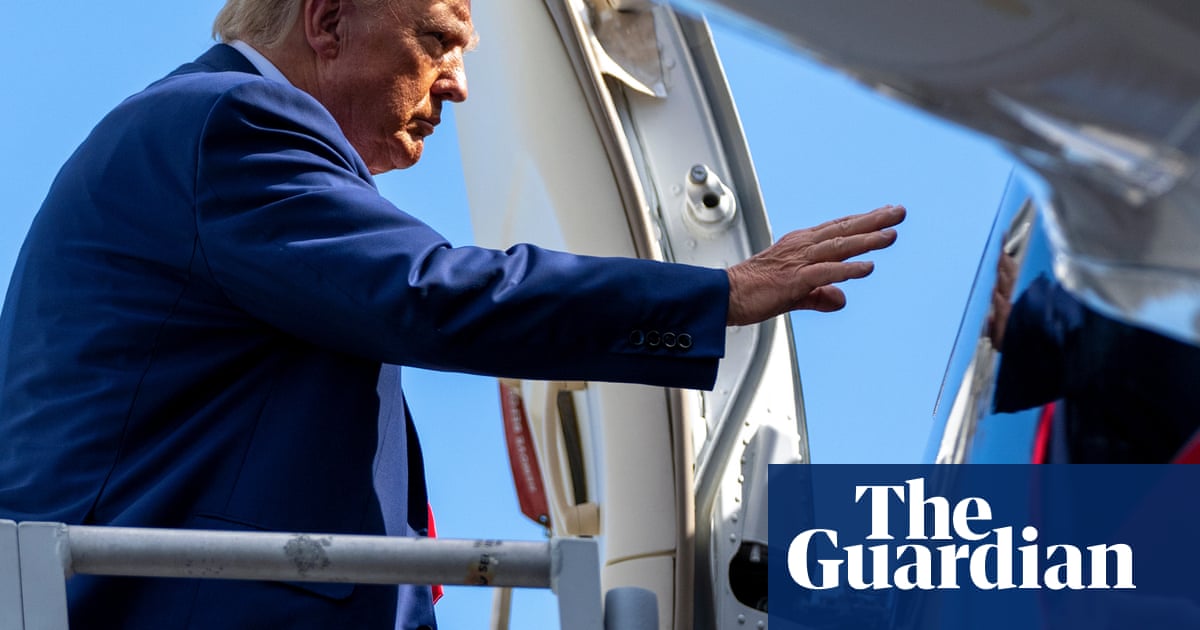Trump’s Ethical Minefield: Accepting a Luxury Boeing Jet from Qatar
Former President Donald Trump has ignited a firestorm of controversy following indications that he is preparing to accept a luxury Boeing jet from the Qatari royal family. Known in some circles as a "flying palace," this aircraft could become one of the most expensive gifts ever received by the U.S. government. While Trump seems enthusiastic about the acquisition, legal and ethical implications are rapidly mounting.
The Attraction of Luxury
Trump’s discontent with the existing Air Force One jets is not new. Reports suggest he toured the lavish Qatari-owned jet back in February during a visit to Palm Beach International Airport. Those close to the former president indicate he views the luxurious aircraft as a preferable alternative for his high-profile travels. With opulence and convenience at the forefront, the jet raises questions beyond just its aesthetic allure.
Criticism from Allies and Opponents
Laura Loomer, a far-right ally of Trump, has expressed strong opposition to the potential gift, stating that accepting such an aircraft would be a “stain” on his administration. Loomer pointedly noted that Qatar is known to fund Iranian proxies like Hamas and Hezbollah, organizations implicated in violence against U.S. service members. Such comments highlight the fraught geopolitical implications of the proposed deal, casting a shadow over the allure of the luxury jet.
On the political front, the Democratic National Committee has wasted no time in condemning the proposal, asserting it exemplifies Trump’s tendency to use the presidency for personal financial gain. Democratic lawmakers have labeled the plan as “wildly illegal” and as “corruption in plain sight,” emphasizing the notion that national interests might be compromised for personal luxury.
Legal Perspectives
The legal ramifications are complex and contentious. Trump’s legal team, including attorney general Pam Bondi and top White House lawyer David Warrington, has reportedly concluded that accepting the gift may be “legally permissible.” They propose that it could be transferred over to Trump’s future presidential library, which they believe could sidestep some existing laws governing presidential gifts. This perspective raises eyebrows given the strict guidelines intended to prevent corruption and conflict of interest within the highest levels of government.
The juxtaposition of legal permissibility versus ethical responsibility forms a significant part of the discussion surrounding this proposal. While the legal framework may allow for such a gift, the ethical implications and potential backlash from both parties complicate the narrative. Many critics maintain that the spirit of the law was designed to protect presidential integrity—something they argue would be undermined by such a lavish acceptance.
Broader Context: Qatari Relations and Diplomacy
The timing of this controversy occurs against a backdrop of U.S.-Qatar relations that have been both cooperative and contentious. Qatar’s role in mediating sensitive diplomatic situations, including those involving Hamas and various Middle Eastern conflicts, adds layers of complexity to Trump’s potential acceptance of the jet. The U.S. has traditionally maintained a cautious yet engaged stance toward Qatar, labeling it a strategic ally in the Gulf region, despite its controversial role in financing extremist organizations.
Trump’s upcoming visit to the Middle East—including stops in Saudi Arabia, the UAE, and Qatar—also ties into this narrative. The trip could serve as a backdrop for bolstering diplomatic ties while simultaneously highlighting the questionable optics of accepting such a gift.
The Road Ahead
As the controversy surrounding the Boeing jet unfolds, it serves as a reminder of the intricate balance between personal interests and public trust in political leadership. The differing opinions illustrate that many view Trump’s actions through the lens of a society increasingly skeptical of political corruption. The ramifications of this potential gift promise to reverberate not only within the political sphere but also among the public, whose trust is pivotal for any administration.
This situation encapsulates the ongoing tensions between ethical governance and personal ambition, ensuring that the dialogue surrounding it will remain heated for the immediate future. With voices from both sides of the political aisle weighing in, the dilemma signifies a critical juncture in how luxury, governance, and ethics interplay in modern politics.


